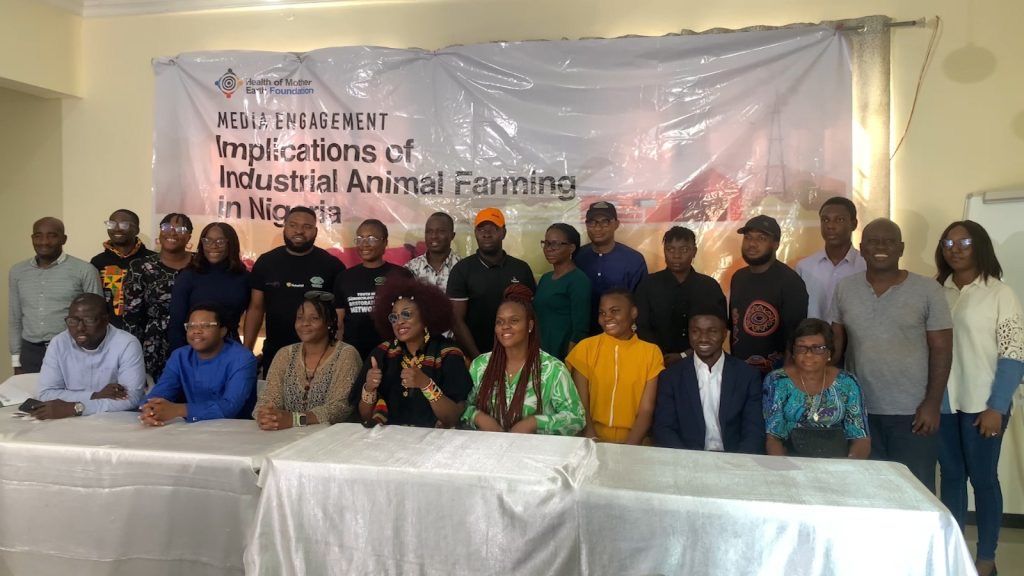
Stakeholders in Nigeria’s environmental, agricultural, and public health sectors have warned that the country’s growing shift toward industrial animal farming could threaten its food sovereignty, worsen public health risks, and harm the environment if strong safeguards are not put in place.
The warning was issued during a media training on Industrial Animal Farming and its Implications for Nigeria, where participants expressed concern that Nigeria’s partnership with JBS, a Brazilian multinational meat corporation, could displace smallholder farmers, degrade ecosystems, and increase vulnerability to infectious disease outbreaks.

Joyce Brown, Programme Manager at the Health of Mother Earth Foundation (HOMEF), revealed that the $2.5 billion, five year investment deal signed with JBS in November 2024 includes plans to establish three poultry plants, two beef processing plants, and a port facility. Ogun State will serve as a key hub for the project, while Niger State has offered 1.2 million hectares of land for livestock production.
While the federal government has hailed the agreement as a major boost for agribusiness, Mariann Bassey-Olsson, Coordinator of the Food Sovereignty Program at Friends of the Earth Nigeria and Africa, cautioned that Nigeria risks repeating the “damaging effects” of industrial livestock systems experienced elsewhere.

She explained that such systems often rely on confined feeding operations and heavy antibiotic use, which can contribute to zoonotic diseases and antimicrobial resistance.
“Factory farming is a profit-driven system that prioritises output over sustainability,” Bassey-Olsson said, noting that it leads to land and water depletion, soil degradation, and pollution from animal waste.
“The future of food in Nigeria is at stake. We must protect food sovereignty and support smallholder farmers through agroecology and farmer-led approaches,” she added.
Abimbola Solagbade, Executive Director of Health Beyond Barriers Initiative, also raised alarm that Nigeria’s fragile health system could come under further strain from diseases linked to industrial livestock production, including Ebola, Mpox, COVID-19, rabies, and Lassa fever.
In his presentation, Mayowa Shobo, Programme Manager at HEDA Resource Centre, presented findings from a Nasarawa State study showing that smallholder farmers had suffered crop losses and income decline due to flooding and chemical spraying from large-scale farms.
He urged the government to invest in health facilities, flood control, and early warning systems, while prioritising support for women and youth disproportionately affected by industrial agriculture.
The training was jointly organised by HOMEF and Environmental Rights Action (ERA), in collaboration with the Youth in Agroecology and Restoration Network (YARN) and HEDA Resource Centre, to strengthen journalists’ capacity to report critically on industrial livestock production and its broader socio-environmental impacts.



